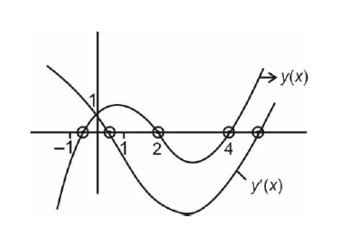Let f be a twice differentiable function on (1,6). If f(2) = 8, f'(2) = 5, f'(x) ≥ 1 and f''(x) ≥ 4, for all x ∈ (1,6), then:
Let f be a twice differentiable function on (1,6). If f(2) = 8, f'(2) = 5, f'(x) ≥ 1 and f''(x) ≥ 4, for all x ∈ (1,6), then:
f (2)=8, f' (2)=5, f' (x) ≥ 1, f' (x) ≥ 4, ∀x ∈ (1,6)
Using LMVT
f' (x) = (f' (5) - f' (2)/ (5-2) ≥ 4 ⇒ f' (5) ≥ 17
f' (x) = (f (5) - f (2)/ (5-2) ≥ 1 ⇒ f (5) ≥ 11
Therefore f' (5) + f (5) ≥ 28
Similar Questions for you
y (x) = 2x – x2
y? (x) = 2x log 2 – 2x
M = 3
N = 2
M + N = 5
y = x3
Equation of tangent y – t3 = 3t2 (x – t)
Let again meet the curve at
=> t1 = -2t
Required ordinate =
Given f(X) =
So
put
(i) + (iii), f(x) +
Hence f(e) +
Taking an Exam? Selecting a College?
Get authentic answers from experts, students and alumni that you won't find anywhere else.
On Shiksha, get access to
Learn more about...

Maths Applications of Derivatives 2025
View Exam DetailsMost viewed information
SummaryDidn't find the answer you were looking for?
Search from Shiksha's 1 lakh+ Topics
Ask Current Students, Alumni & our Experts
Have a question related to your career & education?
See what others like you are asking & answering

